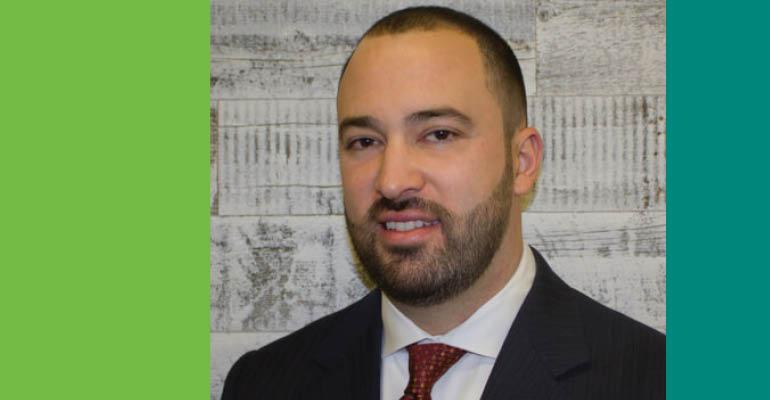Gregory Lettieri turned his passion for technology into a successful career when he left his job as senior vice president of Bank of America’s tech department to launch Recycle Track Systems (RTS) with his longtime friend and fourth generation waste and recycling industry pro Adam Pasquale in 2015.
Since establishing the business, Lettieri has helped develop four unique technologies to improve customer retention, training, collections and services and grow the company.
In addition to running RTS, Lettieri participates in and supports Staten Island Community for the Lifestyles of the Disabled Charity Group, a nonprofit that helps young adults and adults with special needs find successful employment opportunities. He also produced two musical soundtracks for NBC’s “Peter Pan Live!” and “The Wiz Live!” as well as other investments on Broadway.
Lettieri recently received a Waste360 40 Under 40 award for his outstanding contributions to the waste and recycling industry, and he spoke with us about how he came up with the concept of RTS and how his firm is keeping up with the competition in the industry’s burgeoning technology sector.
Waste360: How did you come up with the concept of Recycle Track Systems?
Gregory Lettieri: My cofounder Adam Pasquale and I have been friends for more than 12 years. He’s fourth generation in the waste and recycling industry, and I have more than 10 years of experience in technology product development, product delivery and executive management experience.
We came up with the concept of Recycle Track Systems when I was the senior vice president of Bank of America’s technology department and building technology platforms for investment bankers and traders, and Adam was working for one of the largest waste haulers in NYC. We lived in the same apartment building at the time, and we were discussing the waste and recycling industry while watching a World Cup soccer game and enjoying some beers. He mentioned that he thought technology could disrupt the industry, and that idea sparked my interest. I asked him to do a presentation for me so I could better understand his ideas, and three weeks later we had a firm business plan and applied for our licenses.
I saw our idea as an opportunity where we could build our own business and technology that could be utilized to help collect waste and track recyclable material. And that’s exactly what Recycle Track Systems became when we launched it in March 2015.
Waste360: Tell us about your role as cofounder and CEO and some of your responsibilities.
Gregory Lettieri: We started this company as a true startup. Before we hired a team, it was just Adam and I in a two-person office. It’s a unique thing to grow so quickly, but we brought on employees who are experts in different areas of the business so that really helped us start off on the right foot.
My expertise is really creating and maintaining the team environment. From day one, Adam and I have focused on building in scale with the right team, and every hire that we have continues to be the right person for the right role.
We currently have 12 full-time employees and a handful of part-time and technology contractors who write code for us, and we are looking to triple the amount of employees that we have in the next six to eight months. A big part of my role right now is to help find the right people to fill our upcoming open positions.
Waste360: How have you helped grow the company in just 25 months?
Gregory Lettieri: We have seen revenue grow tremendously month over month, which is interesting because our business is a recurring business model. We are focused on signing contracts and retaining recurring business, and that’s really where our revenue growth is coming from.
Our brand is also powerful, and that leads to additional revenue. Buying RTS.com was a fantastic purchase for us, and creating Rudy the Truck for our social media accounts has also been a great branding factor for us. Our brand, RTS, is trusted because it’s three letters. When you think of three letters, you think of UPS, NBC and other trusted three-letter brands. We are proud to be a three-letter brand, and we will continue to prove that we are a trusted brand as we expand our business.
Waste360: Since launching RTS, what challenges have you faced and how did you overcome them?
Gregory Lettieri: Our biggest challenge was finding a way to show value to our hauling partners. We built a technology platform that operates without trucks, and since we don’t own trucks, we had to prove that our technology could operate in trucks and improve customer retention, training, collections and services. That was the biggest unknown for us when we first started, but now we are able to show the value of our products to customers and that keeps us moving in the right direction.
Waste360: How are you keeping up with the competition in the technology sector of the waste and recycling industry?
Gregory Lettieri: From a technology standpoint, I think we are leading the way with our four technology products—a customer-facing application for smartphones, a tablet equipped with turn-by-turn GPS truck routing and a digital routing sheet, a desktop CRM tool for haulers and customers and an internal application that remotely tracks trucks and service orders.
We are staying ahead of the competition by constantly making updates to those four technologies. The technologies work very well, and it’s really about adding additional features to them to support the changing needs of the industry.
We also have a niche in food waste recycling, which is top of mind for a lot of people in the industry right now. We have agreements in place with companies like Whole Foods, Juice Press, Dean and Deluca, WeWork, Soul Cycle, etc., to pick up their food waste and recycling materials. We track the materials as they travel to composting and recycling facilities, and we provide these companies with detailed reports that show how much material was actually recycled or composted. That service and provided data is a huge win for companies that are hiring sustainability managers and directors and taking the next steps to better the environment.
Waste360: In addition to your role at RTS, you helped produce “Peter Pan Live!”, “The Wiz Live!” and “Something Rotten”. Tell us about that experience.
Gregory Lettieri: I worked with a team of other producers to raise capital to put together the shows. The production company I am associated with owns the music rights to the shows, and I helped work on the soundtracks and music downloads. It was very exciting to be part of those shows, and I see myself staying very involved with the Broadway community in the future.
Waste360: You also work with the Staten Island Community for the Lifestyles of the Disabled Charity Group. Tell us about that nonprofit and your role with that.
Gregory Lettieri: The nonprofit provides young adults and adults with special needs with successful job opportunities, such as working at the zoo or working with accountants during tax season.
I have a special needs brother, and the Staten Island Community for the Lifestyles of the Disabled Charity Group is very important to my family. My mother is on the board of directors, my retired father is an employee and I help sponsor events and fundraisers.
Waste360: What advice do you have for the future generation of waste and recycling industry workers?
Gregory Lettieri: The industry is massive in both size and scope and it’s very demanding, but there are a lot of great opportunities. Currently, there is a lot of potential to increase recycling and food waste recycling in all markets, and that’s very exciting.
In addition to that, technology has and will continue to change how service, collections and recycling are done. Technology has entered the industry, and we are just at the forefront of what’s to come. I would advise coming into the industry with an open mind and fresh ideas. There is always room for new technologies and improvements to processes because the industry is always changing.
– Mallory Szczepanski | Waste360

